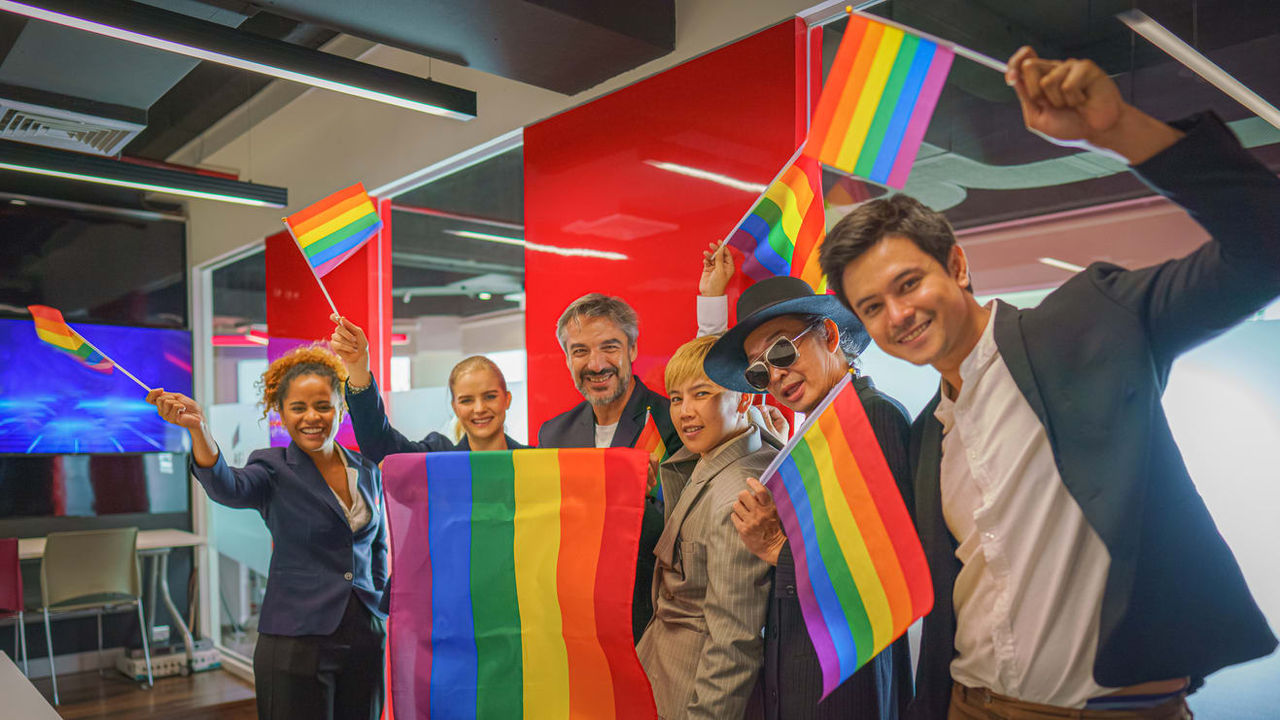When organizations are not inclusive of LGBTQ+ people, they are racking up an array of HR costs, according to Michael Bach.
"There's the cost of lower levels of engagement, of higher voluntary turnover, of recruitment, of decreased innovation," he said. "And so many other potential business impacts."
Bach, the CEO of IDEA Hub Consulting in Toronto, spoke about the business impacts of failing to provide an inclusive workplace for LGBTQ+ employees on Oct. 31 at the SHRM INCLUSION 2023 conference in Savannah, Ga.
He began the session by outlining four key statistics that paint a picture of what LGBTQ+ people experience globally:
- 65: The number of countries where consensual, same-sex activity between two men is illegal.
- 41: The number of countries where consensual, same-sex activity between two women is illegal.
- 11: The number of countries where same-sex activity is punishable by death.
- 14: The number of countries that outlaw gender expression outside of sex determined at birth.
While the U.S. is not represented in those statistics, Bach said that LGBTQ+ people in the U.S. have lost some of their rights, citing laws in states like Florida that prohibit teachers and students from discussing their preferred pronouns.
"I never thought we'd get to the point of regressing around inclusion for LGBTQ+ employees," Bach said. "But we've gotten to a moment where we're seeing that regression. We need the argument for inclusion more than ever."
The Cost of the Closet
A recent BCG study found that LGBTQ+ executives who face discrimination on a regular basis are less productive, less innovative and feel less valued at work than those who don't experience discrimination. They are also 13 times more likely to quit a role due to a noninclusive culture and seven times more likely to reject a job offer for the same reason.
Bach explained that organizations rarely consider how much it costs them when they exclude LGBTQ+ workers.
"We're not just not creating an inclusive workplace," Bach explained. "We're wasting money."
He brought up a hypothetical scenario: Let's assume that an LGBTQ+ person at a noninclusive company spends an average of 15 minutes of their day educating people or being evasive. Over the course of a year, they spend 3,900 minutes either educating people on LGBTQ+ inclusion or masking their identity.
"Essentially, they waste 65 hours of their work year doing something they shouldn't have to do," Bach said. "And their employer pays them for that time."
Specifically, for an LGBTQ+ employee with an annual salary of about $48,500, about $1,550 of their pay is wasted.
"To achieve inclusion for LGBTQ+ people, we have to have a convincing argument," Bach said. "And the financial argument is there."
Master Sgt. Megan Stanislaus, who attended the conference and represents the diversity and inclusion office with the U.S. Air Force, said she appreciated how Bach incorporated the financial aspect into his argument for LGBTQ+ inclusion in the workplace.
"This is something that affects both the public and private space," she said. "We can talk about inclusion all day, but if they know that [not being inclusive] costs money, then employers will start to care."
Ways to Improve LGBTQ+ Inclusion
As Bach explained, workplace exclusion can result in:
- Higher turnover.
- Lower engagement.
- Reduced productivity.
- Decreased innovation.
- More benefits use.
- Increased litigation and complaints.
- Reputation damage.
"All these things have a cost," he said.
Bach offered a few ways for employers to boost inclusion for LGBTQ+ employees:
- All employers should conduct engagement surveys and inclusion surveys to better understand how their employees feel about the company.
- Stop using she/he in every document. "We can say 'they,' " Bach said. "We will survive, I promise."
- Talk about Pride all year, not just in June. "Spreading out those discussions, in itself, would be impactful," he added. "Let's talk about this stuff all year round and give it that visibility."
Bach concluded the session by saying, "We need to change the narrative [of LGBTQ+ inclusion], and employers play a huge role in that."
Advertisement
An organization run by AI is not a futuristic concept. Such technology is already a part of many workplaces and will continue to shape the labor market and HR. Here's how employers and employees can successfully manage generative AI and other AI-powered systems.
Advertisement



